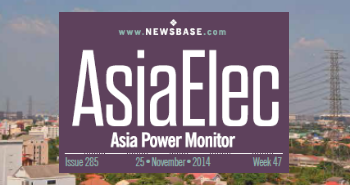AsiaElec: EU and Taiwan settle WTO dispute over offshore wind local content rules

The European Union and Taiwan have reached a significant resolution over a trade dispute related to Taiwan’s offshore wind auction rules, marking a win for international trade diplomacy. The controversy centred on Taiwan’s local content requirements, which the EU argued were in violation of World Trade Organization (WTO) commitments, as reported by offshoreWIND.
In July, the EU formally requested consultations at the WTO after raising concerns about Taiwan’s localisation policy, which mandates that a substantial portion of components for offshore wind farms be sourced domestically. Specifically, Taiwan’s Ministry of Economic Affairs had set a requirement that 60% of components in the first phase of its offshore wind projects, completed in December 2022, be procured locally – unless Taiwanese suppliers were unable to meet demand.
The EU's objection was based on the premise that such local content rules could distort trade by discriminating against non-Taiwanese goods and services. In its complaint to the WTO, the EU argued that the regulations would lead to inefficiencies, price hikes, and ultimately hinder the transition to renewable energy. By restricting the use of imported goods, the EU contended, Taiwan's approach could make the shift to cleaner energy more expensive and slow down global climate efforts.
Taiwan has now agreed to make substantial adjustments. Following the WTO talks, Taiwan committed to removing local content requirements from future offshore wind auction rounds. This includes the removal of such criteria from both eligibility conditions and award criteria. The country also pledged greater flexibility in the way winning projects from the latest auction would be implemented, addressing challenges faced by developers, including European firms, who had struggled with the rigid localisation rules.
This agreement is an important step in fostering smoother international collaboration in the renewable energy sector. By ensuring a level playing field, both Taiwan and the EU are signalling a commitment to a more efficient and cost-effective energy transition.
For the EU, the resolution of this dispute is seen as a victory for fair trade principles and a move towards more transparent, non-discriminatory trade practices. The outcome also demonstrates the WTO’s continued relevance in resolving complex trade issues, even in the context of ambitious global climate goals.
If you'd like to read more about the key events shaping the Asian power sector then please click here for NewsBase's AsiaElec Monitor.


Follow us online